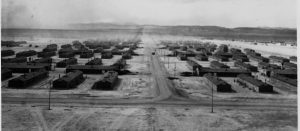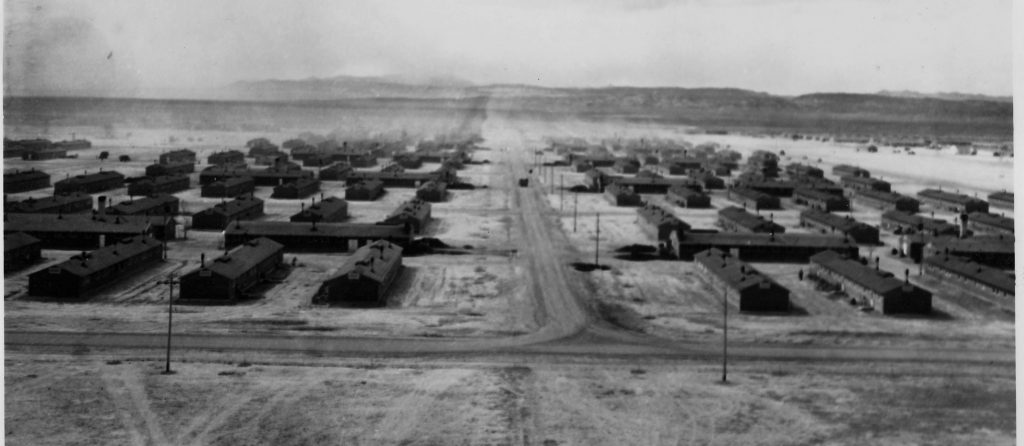
The Topaz War Relocation Center, where Fred Korematsu was sent after his arrest (National Archives)

The Topaz War Relocation Center, where Fred Korematsu was sent after his arrest (National Archives)

The Topaz War Relocation Center in Utah, where Fred Korematsu was sent after his arrest (National Archives)
On this day in 1942, a man named Fred Korematsu was walking with his girlfriend down a street in San Leandro, California, when he was stopped by police. He was arrested for something that, at the time, was illegal: being of Japanese descent on the West Coast of the United States. Just a few months earlier, President Franklin D. Roosevelt had issued Executive Order 9066, which ordered that all people of Japanese ancestry — even native-born American citizens — on the West Coast of the United States were to be rounded up and put in concentration camps. 120,000 people were removed from their homes and placed in “relocations centers” scattered around the western and central United States. But Fred Korematsu didn’t report for “relocation.” And his arrest would spark one of the most infamous Supreme Court decisions in our nation’s history. Learn more in our film, Korematsu and Civil Liberties.